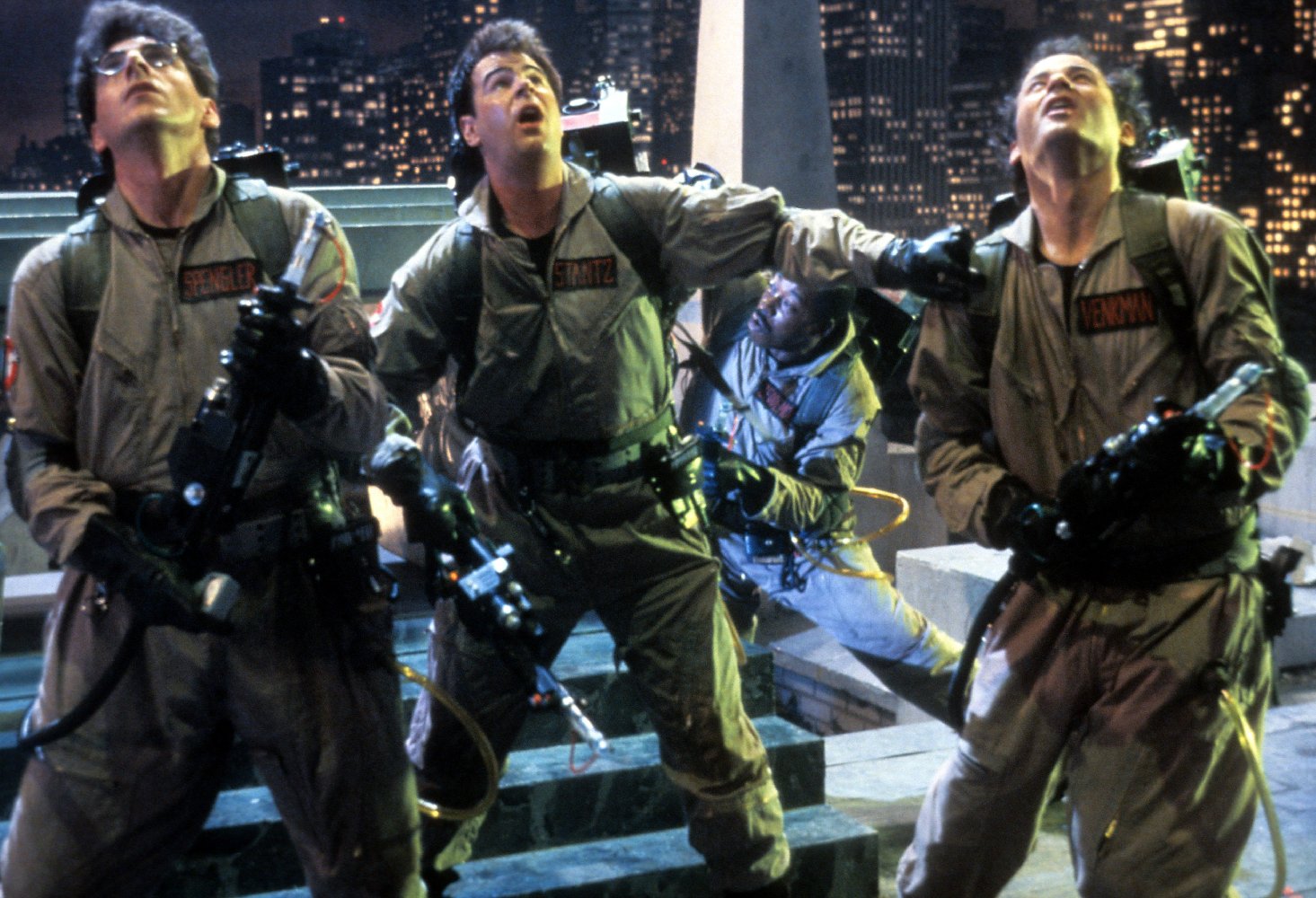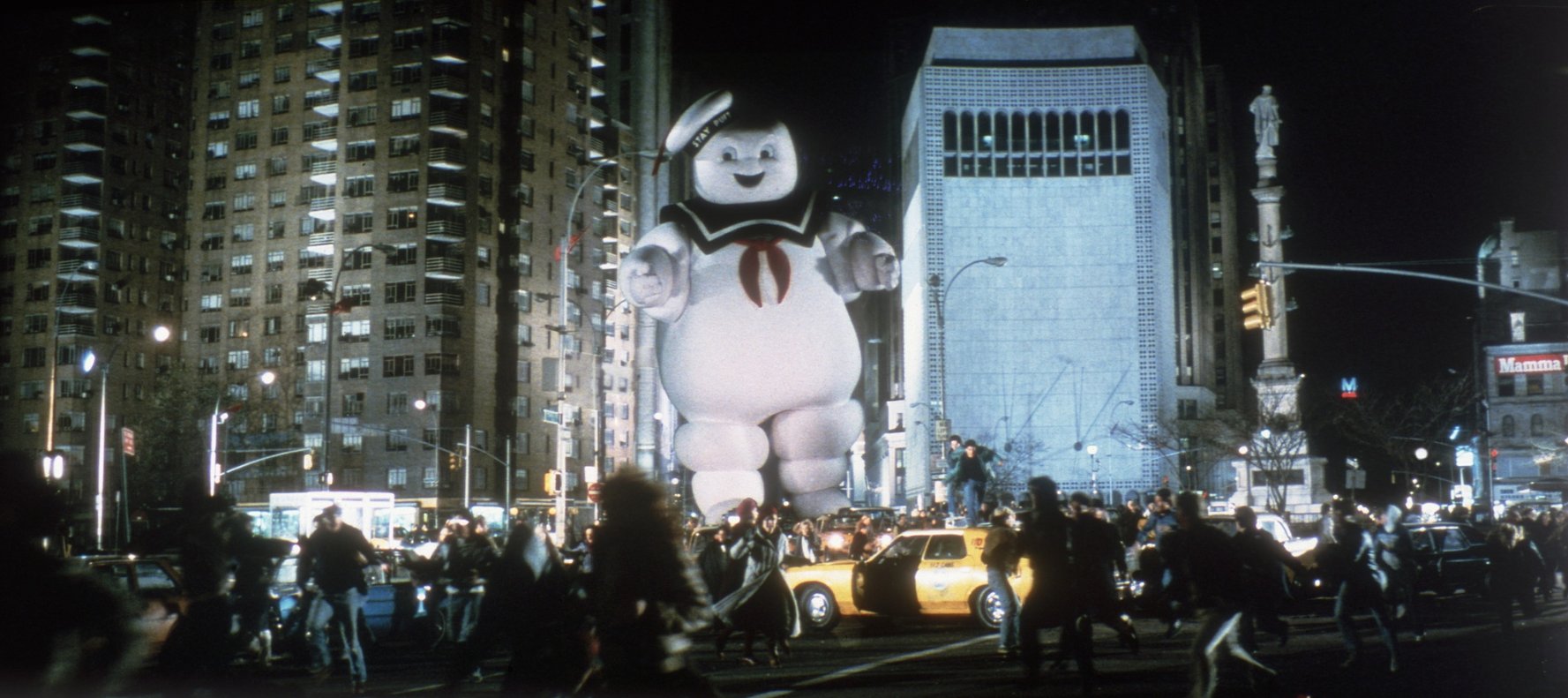The Last Sci-Fi Blog: Appreciating 'Ghostbusters'' Respect for Nerds
1984’s Ghostbusters is a comedy, first and foremost. However, the real brilliance of the film and its lasting appeal can be attributed to how each gag services the characters and their world. Even when Bill Murray is cracking wise and Dan Aykroyd is being a big goofball, the threat at the center of the film – a threat of “biblical proportions” – isn’t in on the joke. When an ancient demonic destroyer takes on the form of the Stay Puft Marshmallow Man, the threat being imposed upon New York City isn’t lessened – it just looks absolutely hilarious. Like Back to the Future and later genre-infused comedies like Shaun of the Dead, Ghostbusters isn’t afraid to embrace the fact that it’s a ghost story. It’s just spooky enough, its ghosts just frightening enough.
But after revisiting Ghostbusters to prepare for the opening of Paul Feig’s new reboot, I realized that Ivan Reitman’s original film isn’t just a comedy punctuated with elements of horror: it is practically a science fiction film. At the very least, it’s a film that has tremendous respect for the eggheads who save the world.
It’s common knowledge the original version of the film dreamed up by Aykroyd was more openly sci-fi, following a team of a ghost hunters who travel across time and space and jump between various dimensions in pursuit of their supernatural foes. While the film was drastically rewritten so it could be made for a more manageable cost, the final film remains distinctly geeky, especially in an era where the leads of major Hollywood films were more likely to shove a nerd into his locker than save the day. After all, the most important element of Ghostbusters, the core idea that often seems to get lost as people discuss the film, is that the three main characters are scientists.

The initial three Ghostbusters (they’re eventually joined by the working class Winston) work for a university. Their fear of the unknown is always overwhelmed by their curiosity. They do not fight with brawn, but with technology they have developed in their own lab. There is nothing suave about them – Aykroyd’s Ray is an enthusiastic loser and Harold Ramis’ Egon a literal-minded master of the accidental deadpan – and that is why they stand out from so many other genre heroes. Decades before people were proud “science nerds,” the Ghostbusters were making technology and physics and making them look like, well, fun. Sure, the movie never offers an actual explanation for how a proton pack works, but the film’s depiction of science as hard, fulfilling, and even blue collar work is weirdly romantic. It’s the kind of thing that helps remind you that the men and women who actually do the heavy lifting in making the impossible possible work far outside of your high school science textbook. They’re getting their hands dirty. Hell, they’re busting ghosts for a living.
Ghostbusters‘ depiction of its heroes as working scientists who rely entirely on their knowledge of theoretical physics and their home-brewed tech ends up creating one of my all-time favorite genre collisions: when science is the only thing that stands in the way of an indefinable supernatural threat. On one end of the spectrum, you have the work of H.P. Lovecraft, whose tales often center on scientists, researchers, and professors who must cling to logic, reason and scholarly judgment if they want to retain their sanity and overcome (or at least survive) a force that exists outside of human knowledge. On the other end, you have Ghostbusters, a second cousin twice removed that sees something impossible (Gozer the destroyer! A green slime ghost!) and announced: “Hey, let’s science our way out of this problem.”
At the time I’m writing this, I have not yet seen Paul Feig’s new Ghostbusters. I hope I will like it. However, I’m heartened by certain aspects of the trailer, namely the focus on how each member of the new team has a different specialization, a mastery of a certain corner of the scientific realm (or in Leslie Jones’ case, her knowledge of New York City history). Punching and shooting is the solution in most major studio movies, so it’s refreshing to see cinematic heroes who defeat the bad guy because they knew the right equations to build a miniature nuclear reactor and strap it to their back.
[embedded content]
This entry passed through the Full-Text RSS service – if this is your content and you’re reading it on someone else’s site, please read the FAQ at fivefilters.org/content-only/faq.php#publishers.
Recommended article from FiveFilters.org: Most Labour MPs in the UK Are Revolting.



